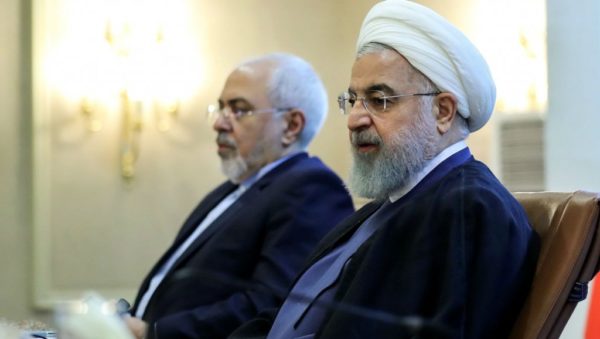
The United States has issued visas allowing Iranian President Hassan Rouhani and Foreign Minister Mohammad Javad Zarif to travel to New York for the annual gathering of world leaders at the United Nations next week, Iran’s U.N. mission said on Thursday.
Iranian U.N. mission spokesman Alireza Miryousefi confirmed to Reuters that the U.S. visas had been issued.
this development comes after US President Donald Trump said on Wednesday that he thinks Iranian President Hassan Rouhani and Foreign Minister Mohammad Javad Zarif should be granted US visas to attend next week’s United Nations General Assembly.
“I would let them come. If it was up to me, I would let them come,” Trump told reporters before departing Los Angeles aboard Air Force One.
“I’ve always felt the United Nations is very important. I think it’s got tremendous potential. I don’t think it’s ever lived up to the potential it has, but I would certainly not want to keep people out if they want to come. So, that would be up to them,” he added.
UN Secretary General Antonio Guterres told reporters Wednesday that it has been in contact with the US in order to solve all delegations’ outstanding visa problems, according to AP.
When Zarif visited the UN this past summer, the US issued him a visa but forbade him from moving beyond six blocks of Iran’s UN mission in Midtown Manhattan, a move which resulted in criticism from the UN.
Iran’s state-run news agency IRNA said earlier on Wednesday that Rouhani and Zarif may not attend the General Assembly in New York because the US had not yet issued them visas. IRNA said Zarif was to travel there Friday and Rouhani was to follow Monday.
The possibility of a meeting between Trump and Rouhani during the General Assembly has been floated around in recent weeks. On Tuesday, Trump said he would prefer not to meet Rouhani, even though he had previously expressed openness to the idea.
Trump announced on Wednesday that he had ordered a “substantial increase” in sanctions on Iran, in the wake of Saturday’s drone strikes on oil facilities in Saudi Arabia, which the country said had disrupted about half of the kingdom’s oil capacity.

Leave a Reply
You must be logged in to post a comment.